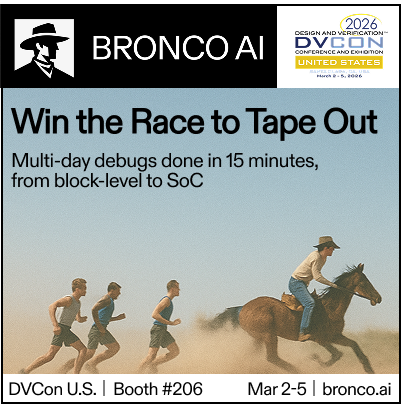
- This event has passed.
Semitracks Course: Defect-Based Testing

Semiconductor and integrated circuit developments continue to proceed at an incredible pace. For example, today’s application-specific ICs and microprocessors can contain upwards of 100 million transistors. Traditional testing relies on the stuck-at-fault (SAF) to model defect behavior. Unfortunately, the SAF model is a poor model for defects. Other models and strategies are required to catch killer defects on integrated circuits. As transistor sizes decrease, the types and properties of the killer defects change. This has created a number of challenges related to the testing of components. Defect-Based Testing is a 2-day course that offers detailed instruction on the electrical behavior and test strategies for integrated circuits. We place special emphasis on electrical behavior, fault models, and test techniques. This course is a must for every manager, engineer, and technician working in IC test, IC design, or supplying test hardware and software tools to the industry.
By focusing on the fundamentals of circuit behavior and the impact of defects on circuit behavior, participants will learn how to design, write, and implement test strategies to catch defects. Our instructors work hard to explain semiconductor test without delving heavily into the complex algorithms and computer science that normally accompany this discipline.
What Will I Learn By Taking This Class?
Participants will learn basic, but powerful, aspects about defect-based testing. This skill-building series is divided into four segments:
- Electrical Behavior of Defects. Participants will study the electrical behavior of defects. They will learn how open circuits, resistive vias, shorts, and transistor variations affect the electrical behavior of the individual transistor, as well as gate elements and larger blocks.
- Fault Models for Defect-Based Testing. Participants will learn about the historical underpinnings of the stuck-at-fault (SAF) model. They will also learn about other testing models, including IDDQ testing, at-speed testing, and delay testing.
- Production Test Methods. Participants will learn about standard digital testing, SAF testing, IDDQ, timing, low voltage tests, and other types of stress tests. They will explore the strengths and weaknesses of each test type.
- The Economic and Quality Impact of Defect-Based Testing. Participants will learn how defect-based testing can actually improve test economics. They will also study the impact on quality and reliability.
Course Objectives
- This course will provide participants with an in-depth understanding of defect-based testing and its technical issues.
- Participants will understand the basic concepts of test economics, yield, test time, and the cost of test. They will also learn how defect-based testing can reduce the possibility of failures in the field.
- This course will identify underused test techniques like IDDQ and Very Low Voltage (VLV) test techniques that can successfully find defects that are difficult to catch using conventional test techniques.
- This course will offer the opportunity to discuss specific test problems with our expert instructors.
- Participants will be able to identify basic and advanced principles for defect-based test.
- Participants will understand the difficulties in extending IDDQ testing to leading edge products, and how to overcome some of these limitations.
- Participants will become familiar with Design for Test (DFT) and Automatic Test Pattern Generation (ATPG) tools used for defect-based testing.
- This course will introduce fundamental and advanced concepts related to extending defect-based testing to future designs.
- Participants will learn what tools are available today to implement defect-based testing.














A Century of Miracles: From the FET’s Inception to the Horizons Ahead